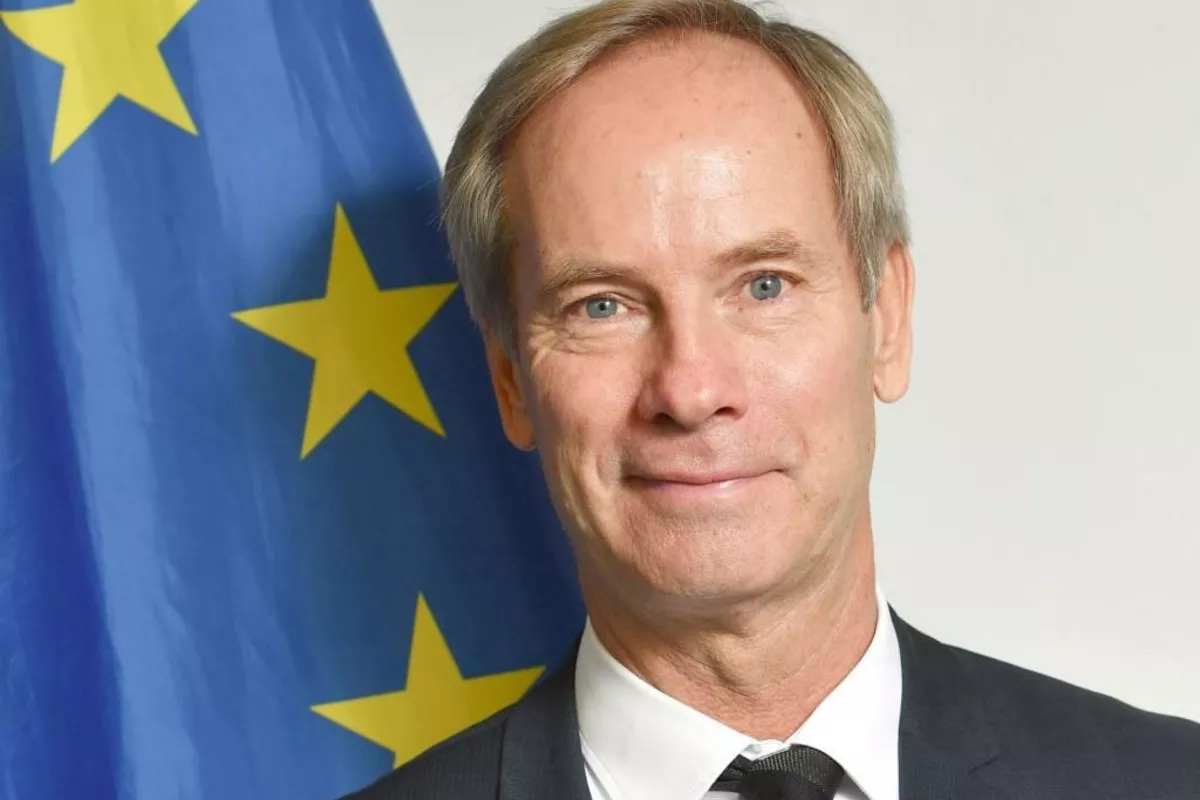
photo: Asia Plus
The 12th annual High-Level Dialogue on Policy and Security between the EU and the Central Asian countries - Kazakhstan, Kyrgyzstan, Tajikistan, Turkmenistan, and Uzbekistan has been recently held in Dushanbe. The EU delegation was led by Swedish diplomat, Deputy Secretary-General for Political Affairs at the European External Action Service Olof Skoog.
The key areas of cooperation between the EU and Central Asian countries were outlined, The Caspian Post reports, citing Skoog's interview with Asia-Plus.
- You have arrived in Dushanbe to chair the 12th High-Level Dialogue on Political and Security Issues between the EU and Central Asia. What was the primary goal of this meeting? Was it achieved? How do you assess the outcomes of the session?
- The main objective of our High-Level Dialogue on Political and Security Issues is to deepen the partnership between the EU and the Central Asian countries, including Tajikistan, on matters of shared strategic interest: regional stability, sustainable development, and resilience. The fact that we have been meeting regularly in this format for 12 years now speaks to the fruitful cooperation that is growing ever closer.
At the first EU-Central Asia Summit in Samarkand this April, our leaders elevated our relationship to the level of a strategic partnership. EU’s High Representative for Foreign Affairs and Security Policy and Vice-President of the European Commission, Kaja Kallas, is also committed to strengthening ties with the region, as evidenced by her participation in the EU-Central Asia Foreign Ministers meeting in Ashgabat in March 2025 and her bilateral visits in this context. We believe the EU has much to offer and that deepened cooperation will benefit both our regions.
During our High-Level Dialogue on Political and Security Issues, I carefully listened to our Central Asian partners to understand regional priorities and jointly identify ways to further strengthen our cooperation, especially amid increasingly complex geopolitical circumstances.
I am pleased to report that the meeting fully achieved its goals. It confirmed the mutual interest in enhancing collaboration on issues such as border management, counter-terrorism and organized crime, as well as cooperation in water resources and energy. We also had open and constructive discussions on ways to support regional dialogue and interaction.
Together with the deputy foreign ministers of Kazakhstan, Kyrgyzstan, Tajikistan, Turkmenistan, and Uzbekistan, we reaffirmed our commitment to a stronger and more forward-looking partnership. At the Summit in April, our leaders also pledged to establish a special EU-Central Asia dialogue on counter-terrorism. Just a few months later, on July 10, 2025, we held the first meeting in this format, clearly demonstrating that we back our words with actions.
The positive and engaged tone of our dialogues fills me with confidence that we are moving forward, entering a new strategic phase of our partnership by taking practical steps and strengthening mutual understanding.
- Tajikistan is close to initialing the Enhanced Partnership and Cooperation Agreement (EPCA) with the EU. What benefits will the new EPCA bring to Tajikistan and the EU?
- The Enhanced Partnership and Cooperation Agreement represents a significant advancement in the relationship between the EU and Tajikistan. For Tajikistan, it provides a stronger and more modern framework for engagement with the EU in key areas such as economic development, education, energy, climate resilience, digital transformation, and the rule of law.
The EPCA delivers tangible, practical benefits to the people of Tajikistan. It will help attract investments, expand trade opportunities, create jobs, and raise standards across all sectors-from public administration to agriculture. Additionally, it will provide a structured platform for dialogue and cooperation, supporting Tajikistan in achieving its own development goals.
For the EU, the EPCA reflects our growing commitment to Central Asia, and particularly to Tajikistan. It enables closer collaboration to address regional and global challenges through strengthened engagement based on mutual interests and shared values.
Central Asia continues playing a pivotal role in bridging Europe and Asia, which is why the EU regards trade, transport, and connectivity with the region as top priorities.
- What role do human rights and media freedom play in the High-Level Dialogue on Politics and Security?
- Human rights and media freedom are essential components of our relationship with Central Asia, and they are integral to this week’s dialogue as well.
Human rights are not a secondary issue but a fundamental part of a strong and resilient society. Stability and security can only be sustainable when human rights are respected, institutions are transparent, and citizens have the opportunity to participate and be heard.
We regularly hold dedicated Human Rights Dialogues with all five Central Asian countries. During these discussions, we openly and constructively address these issues with our partners. We acknowledge progress made and, when necessary, share our concerns - always respectfully and in a spirit of cooperation.
In the past, when I served as the EU Special Representative for Human Rights, we established very substantive cooperation in Central Asia, and our engagement was mutually beneficial.
The EU is committed to supporting Central Asian countries in their reform efforts. This includes strengthening the rule of law, promoting inclusive governance, and supporting independent media and civil society. We aim to assist our partners in achieving their own goals for a more just, open, and prosperous future.
Share on social media